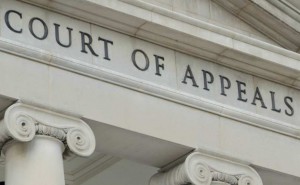Powers v. St. John’s University School of Law
25 N.Y.3d 210
Court of Appeals
Decided: April 2, 2015
Article 78 Filed By University Student To Challenge Expulsion (←click here)
See Video Article 78 Petitions and Proceedings: Five Things You Should Know About Article 78
ISSUE
Whether a university’s decision to rescind a student’s application, where the student made misrepresentations on his application, requires judicial intervention through an Article 78 proceeding?
Article 78 Is The Appropriate Vehicle For Student To Challenge The University’s Decision To Rescind Admission
HOLDING
The Court of Appeals held that the school’s dismissal of a student who made misrepresentations on his application was 1) not arbitrary and capricious, 2) in good faith, 3) not subject to the school’s handbook which expressly applied only to academic controversies, and 4) was not disproportionate to the misconduct.
Student Chose To File An Article 78 To Challenge The Decision Of The University
FACTS
Petitioner Powers was a law student at St. John’s University School of Law when the school discovered Powers had made misrepresentations and omissions on his application with regard to his criminal history. While on a leave of absence, the school advised Powers to amend his application to include an accurate account of his criminal history and that the school would then determine whether Powers would be subject to disciplinary action, including possible removal from the school.
Powers responded by providing documentation disclosing his actual convictions and stating that he had not previously disclosed the extent of his criminal history on the advice of his attorney. Several months later, Powers met with several of the school’s deans where he was given an opportunity to explain his actions and was told he could submit a request to amend his application. However, about two months after the meeting, the school notified Powers that it was rescinding his application.
Subsequently, Powers brought an Article 78 proceeding to challenge the law school’s decision to rescind his admission.
ANALYSIS
Generally, in Article 78 proceedings, New York courts tend to leave a school’s decision alone unless the school’s decision was arbitrary, not in good faith, or the decision was without regard to the school’s rules. The Court of Appeals held that none of these exceptions applied to Powers.
First, the Court found that the University had a multi-step process that it uses with respect to misrepresentations and omissions on applications. First, the University gave the student the opportunity to amend his application; second, the University gave the student notice that the school would make a determination as to whether the non-disclosure and underlying criminal activity warranted disciplinary action; third, the student was allowed to meet with several of the Deans of the Law School and explain his side of the story; fourth, the student was given the opportunity to put into writing a request to amend his application; fifth, the student was given the opportunity to submit additional evidence; sixth, the Deans of the Law School reviewed the new evidence the student provided. After this thorough process and vetting of the evidence and giving the student the opportunity to provide evidence and to tell his side of the story, the Law School notified the student that they were rescinding his application. 
The Court of Appeals found that the school’s treatment of Powers was rational in that it was not inconsistent to the school’s approach to rescind admission. The school stated that, had Powers submitted an application with the amendments he later made, his application would have been rejected. The school maintains there is an unwritten policy to reject applicants convicted of the same crime as Powers. The Court held this policy was not irrational and within the exercise of the school’s honest discretion.
As to the question of whether the law school acted in a way that was arbitrary or capricious, the Court held this was not the case, given that Powers was on notice based on the electronic certification that he submitted with his application, that the failure to provide truthful answers to the questions could result in denial of admission, dismissal, or rescission of an awarded degree from the school.
Powers also argued that the school failed to follow its own rules and procedures set forth in the student handbook. However, the handbook was expressly limited in its applications, the procedures only apply to “the conduct of students with respect to academic and related matter” (i.e. grades, attendance, exams, etc.). Since Powers’ conduct was unrelated to academic matters, the student handbook did not apply. Notably, over the course of several months, Powers was given the opportunity to defend his misrepresentations and to meet with the school’s deans.


